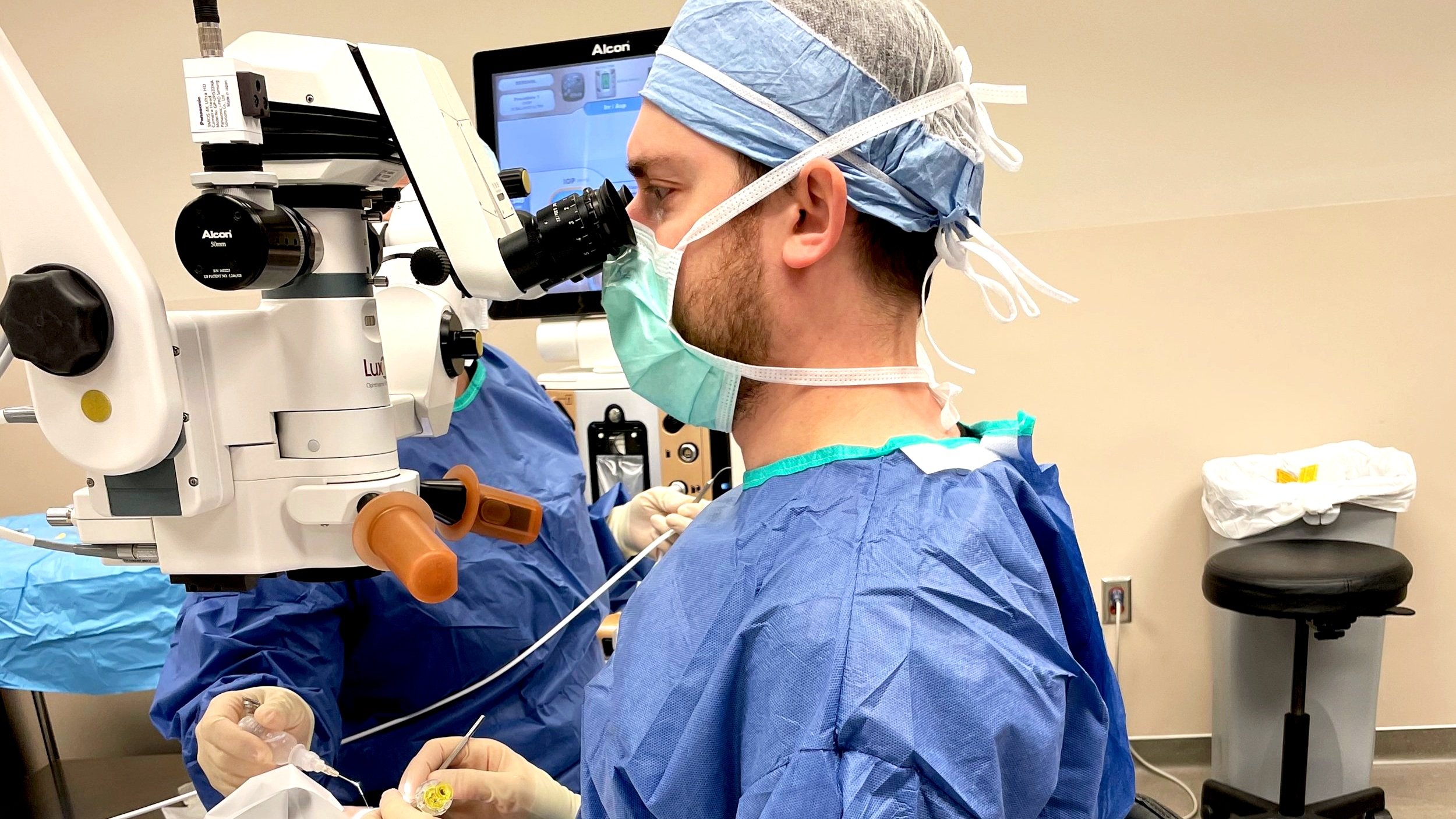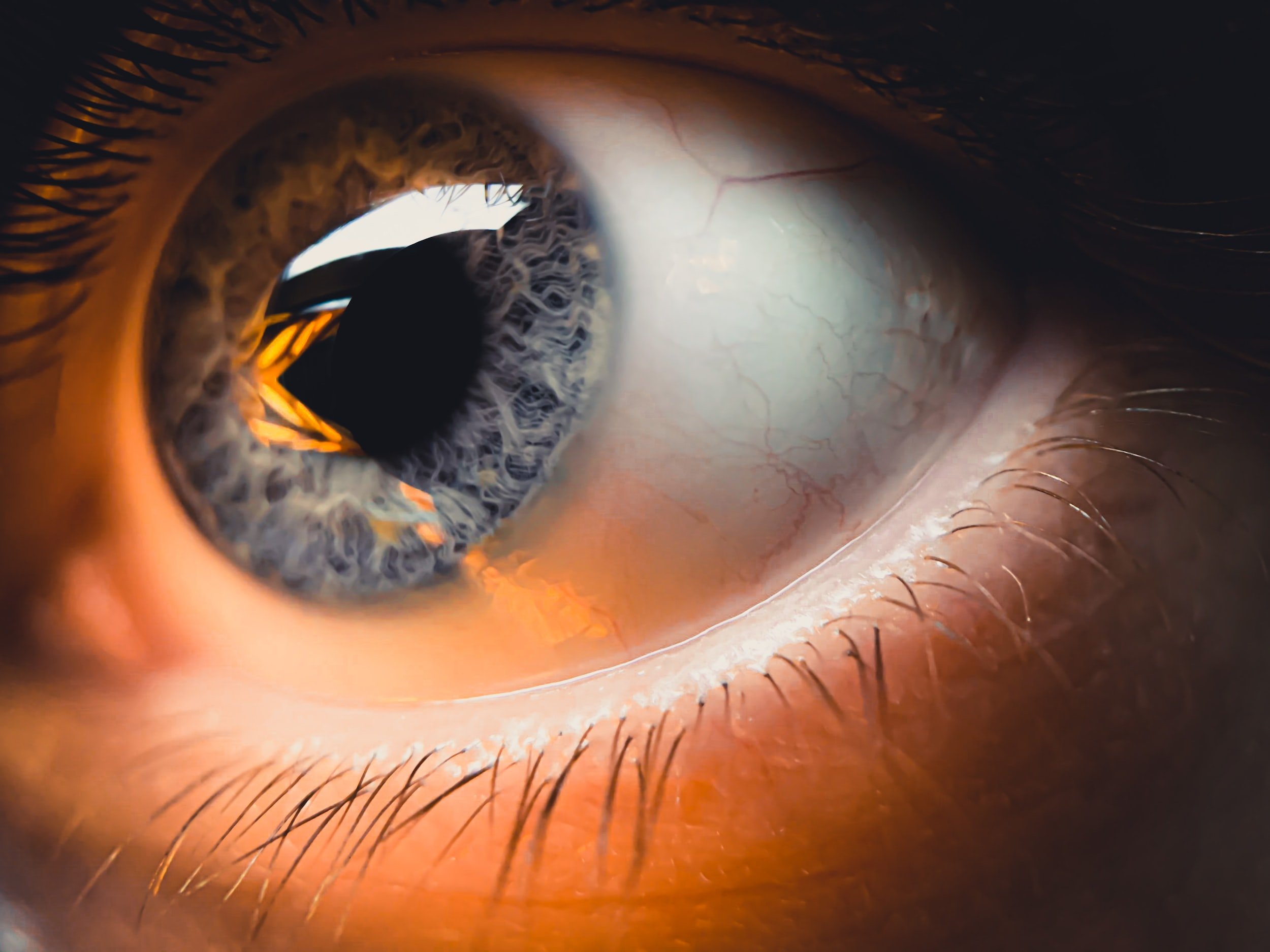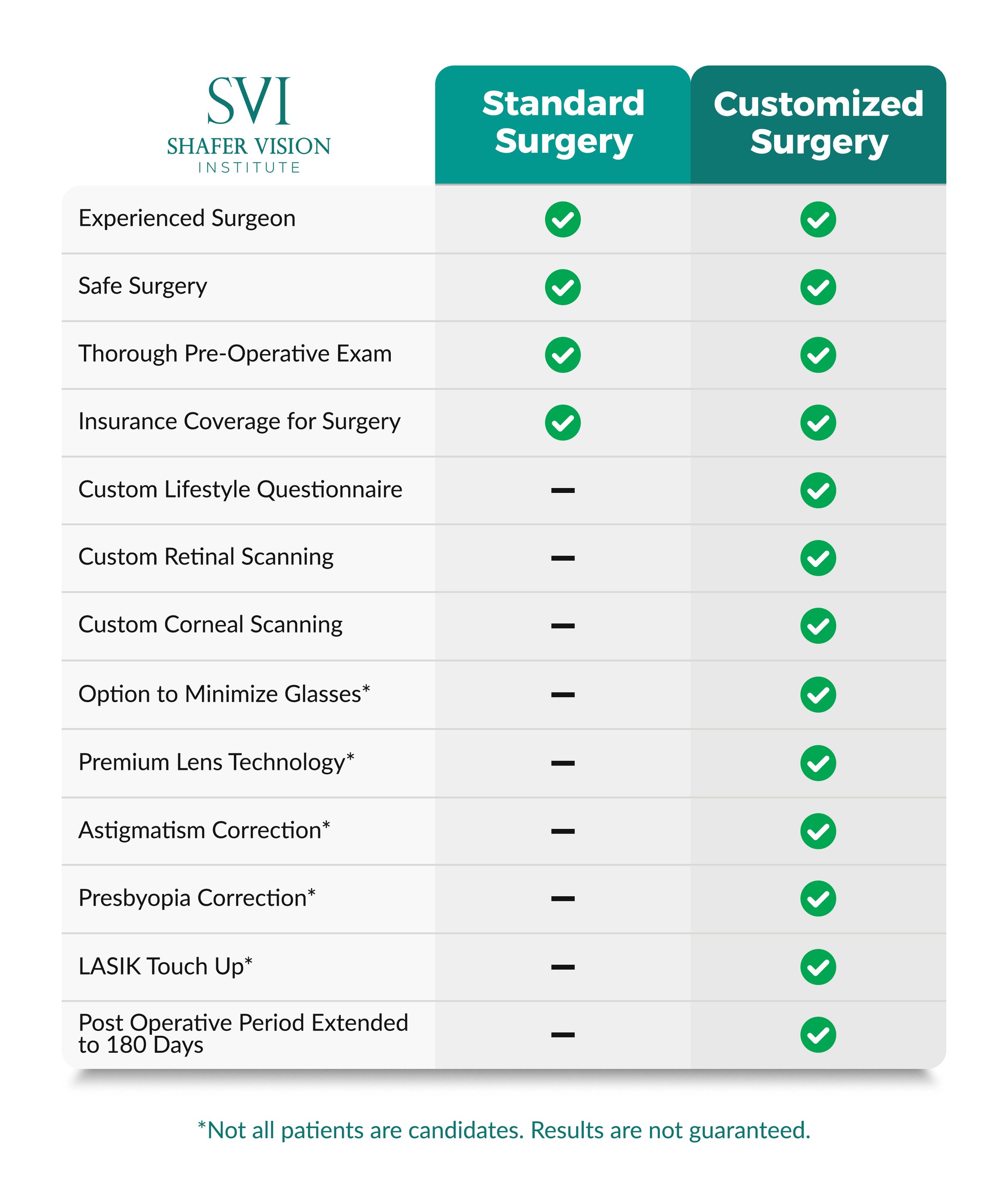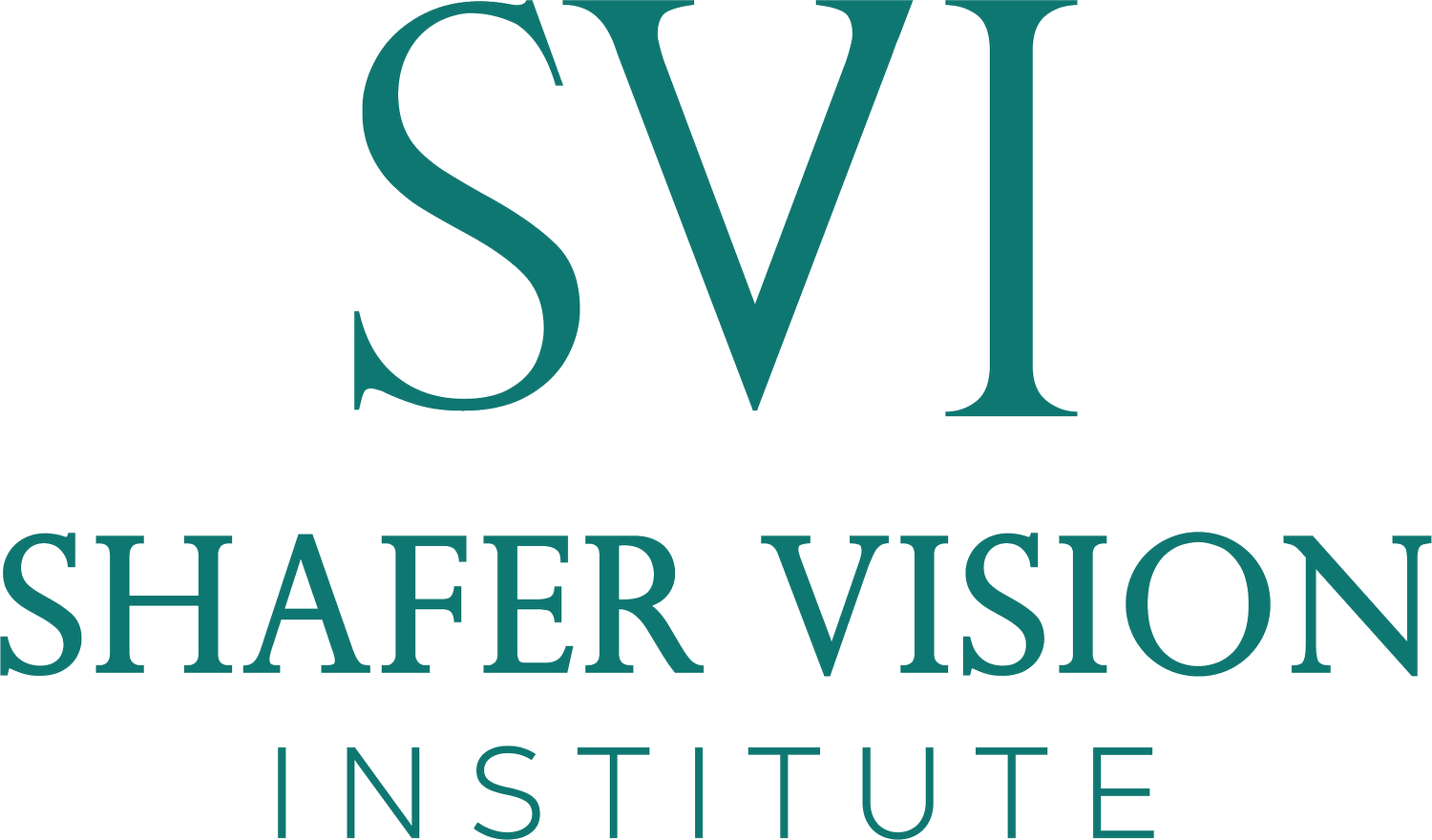
“I think of myself as a cataract surgery matchmaker. With simplicity and transparency, my goal is to marry the perfect lens to the each unique patient’s eye. I take pride in the process.”
Cataract Surgery Philadelphia
Your Sight, Our Passion
Providing the highest quality cataract surgery experience for patients from Montgomery, Bucks, Chester, and Delaware Counties. Easy access from Horsham, Plymouth Meeting, Fort Washington, Collegeville, King of Prussia, Philadelphia, Dresher, Blue Bell, Doylestown, Gladwyne, Bryn Mawr, Villanova, Devon, and Berwyn.

Cataract Surgery
As we age, it is almost inevitable that we will develop cataracts, much like the graying of our hair. However, cataracts don't have to mean a life of blurry vision and glare. With cataract surgery, it is possible to not only address the frustration of compromised vision but also rejuvenate your sight, freeing you from the need for glasses. At the Greater Philadelphia area's premier vision center, Shafer Vision Institute, we strive to give you exceptional vision using cutting-edge lenses and accurate laser techniques, all with the goal of revitalizing the clarity you enjoyed in your youth.
Dr. Shafer is passionate about cataract surgery. As a thought leader in his field, he lectures nationally about intraocular lens technology and cataract surgery techniques. In fact, Dr. Shafer implanted the most presbyopia-corrected lenses in the city of Philadelphia last year. Owing to his extensive experience and surgical skill, you can trust that your personalized cataract treatment plan at SVI will be tailored specifically to your eyes, your lifestyle, and your unique requirements. You are what we care about most.
“I haven’t seen this well since I was 17 years old!”
-B.W.
It’s Time To Upgrade Your Sight
Customized Vision Package
Not only do you have the opportunity to clear the haze and glare created by cataracts, but you can choose to Customize your vision.


Frequently Asked Questions about Cataract Surgery
-
A cataract is a clouding of the eye's natural lens, which can cause blurry vision, glare, and difficulty seeing at night.
-
Cataracts can be caused by aging, injury, certain medical conditions, or prolonged exposure to UV radiation. The average age of cataract surgery is 73 and I tell people that the biggest risk of developing cataracts is having too many birthdays!
-
Symptoms of cataracts can include blurry or cloudy vision, glare or halos around lights, trouble seeing at night, and frequent changes in eyeglass or contact lens prescriptions.
-
Cataract surgery is typically performed on an outpatient basis and involves removing the cloudy lens and replacing it with an artificial lens called an intraocular lens (IOL). The surgery is usually done under local anesthesia and typically takes under 10 minutes.
-
Cataract surgery can significantly improve vision, reduce glare and halos, and eliminate the need for frequent changes in eyeglass or contact lens prescriptions.
-
As with any surgery, there is a risk of complications such as infection, bleeding, and retinal detachment. There is also a small risk of the IOL becoming dislocated or the eye developing cloudiness in the area behind the lens known as posterior capsular opacification. There is a risk that some pieces of the lens may be left behind requiring a second surgery to remove the residual cataract.
-
Recovery time varies from person to person, but most patients can return to their normal activities within a few days of the surgery. It may take several weeks for the vision to fully recover.
-
Dr. Shafer enrolls most patients into the Drop-A-Day program after surgery. With this, you will use a single eye drop once a day for a month.
Whereas most ophthalmologists force patients to use 3 separate eye drops multiple times a day for a month or more after surgery, Dr. Shafer uses a specialized medicine at the time of surgery that allows for a simplified drop regimen after surgery.
-
While cataract surgery is typically covered by most insurance plans, it is important to check with your insurance provider to confirm coverage and any out-of-pocket costs.
-
While cataract surgery can improve vision, you may still need glasses or contact lenses for certain activities such as reading or driving. There are, however, options to reduce your need for glasses and contacts. These options are not typically covered by insurance and will require out of pocket costs in addition to what insurance covers. We call this the Customized Vision option.
-
At the time of cataract surgery, you have the option to upgrade your sight the way you want. Dr. Shafer will expertly guide you through the process to determine what lens is best for you at the time of surgery. No two patients are alike in their visual goals, and Dr. Shafer takes pride in determining each patient’s individual goal.
The Customized Vision package includes a detailed visual goal analysis, laser surgery, premium IOL technology, intraoperative IOL calculations, simplified drop regimen, 6 months of included post operative care, and a LASIK fine-tune, if needed.
-
Dr. Shafer takes pride in simplifying the process for patients. Rather than offering tiers of pricing based on long lists of technology and vague promises, Dr. Shafer offers simple, all-in pricing of $4200 per eye. There are no hidden fees.
-
No worries at all! Standard cataract surgery will still allow for significant improvements in vision. With standard vision correction, you can expect to wear glasses 100% of the time, both for distance and at near. Standard cataract surgery is covered by insurance, but keep in mind there may still be co-pay and deductible.
We also Care Credit to help make Customized Vision more affordable for all those who desire it.
What Are You Waiting For?
It Is Time To Customize Your Vision
Schedule your free consultation now
Specialty Surgery at SVI
Refractive
Surgery
Correct your vision with our cutting-edge refractive surgery options, including LASIK, PRK, RLE, and ICL. Dr. Shafer utilizes state-of-the-art equipment to help you achieve clear vision, reducing or eliminating the need for glasses or contacts.






